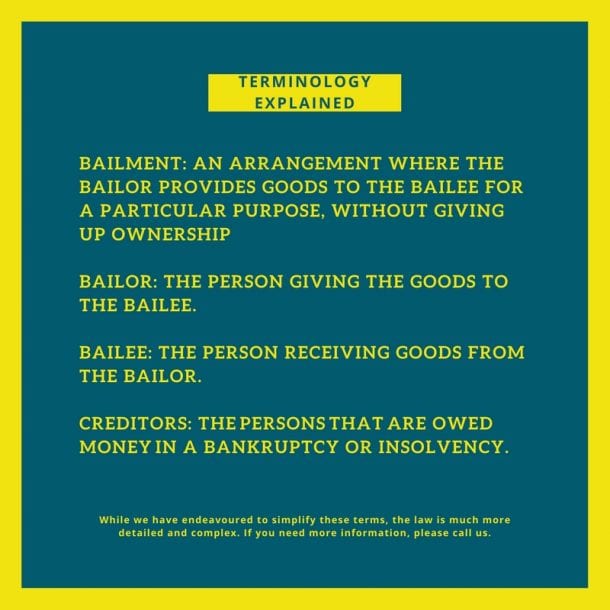
Help! Is my payment an unfair preference?
Help! Is my payment an unfair preference?

Have you received a payment from a debtor company just before they went into liquidation?
Has the liquidator contacted you to ask for repayment of the payment on the basis that it was an unfair preference payment?
If you were registered on the Personal Property Securities Register, you may be able to keep the payment!
In the recent decision of Hussain –v– CSR Building Products Limited; in the Matter of FPJ Group Pty Ltd (In Liq) [2016] FCA 39, the Federal Court held that creditors may defend unfair preference claims brought by liquidators pursuant to a retention of title clause in the relevant agreement.
Unfair preference payments – what are they?
Section 558FA(1) of the Corporations Act 2001 (Cth) (the Act) says that a payment given by a debtor company to a creditor is an unfair preference payment if it results in the creditor receiving from the company, in respect of an unsecured debt, more than the creditor would receive from the company in respect of the debt if the transaction was set aside and the creditor was to attempt to claim the debt when the company was wound up.
A payment can only be an unfair preference if it is made in payment of an ‘unsecured debt’. The unfair preference payment must have been made in the 6 months prior to the company’s liquidation.
The consequence of an unfair preference payment for a creditor is that a Court may order that the payment be paid back to the liquidator of the insolvent company (section 588FF(1)(a)).
The Facts
FPJ Group Pty Ltd (FPJ) was a building supply company which purchased supplies from CSR Building Products Limited (CSR) under a credit agreement. The agreement contained a retention of title clause, now known as a security interest, which said that the goods remained the property of CSR until FPJ made payment in full.
FPJ was put into liquidation, and the liquidator challenged 18 payments made to CSR under the credit agreement in the previous six months (totalling $153,554).
CRS argued that FPJ was not insolvent when it made the payments and that the payments were not unfair preferences as CSR was a secured creditor due to the retention of title clause in the agreement.
Unsecured Debt?
The Court dismissed the liquidator’s claims on the basis that the company was not insolvent at the time of the payments. However, the Court considered whether CSR could have resisted the claim because the debt was a secured debt due to the retention of title clause.
The Court noted that ‘unsecured debt’ is not defined in the Act. It considered that the broad definition of ‘security interest’ in the Personal Properties Securities Act 2009 (Cth) (PPSA) was relevant for the purposes of the Act. The amendments made to the Act in 2010 were intended to make it consistent with the PPSA, and remove the distinction between different forms of security interests so that all transactions that secure payment or performance of an obligation are treated as security interests.
The Court found that the retention of title clause gave CSR a security interest and accordingly the payments could not be clawed back by the liquidator.
But what about…
Just prior to the handing down of Federal Court decision however, the Victorian Supreme Court in Blakeley –v– Yamaha Music Australia Pty Ltd [2016] VSC 231 found that a liquidator had an arguable case that pre-PPSA transactions involving retention of title arrangements were unsecured, however, a final determination was not made.
What to do now?
All this is to say that it is worth having a retention of title clause in your contracts as it may give you a defence to an allegation of preference payment by registering your interest on the Personal Property Securities Register.
If you require assistance with the drafting of a retention of title clause in your agreements, please contact Peter North (Senior Associate, Corporate Practice Group) on (03) 9629 9629.
Related Articles
Copyright © 2021 Lewis Holdway Lawyers. Website Design By LGT Digital









